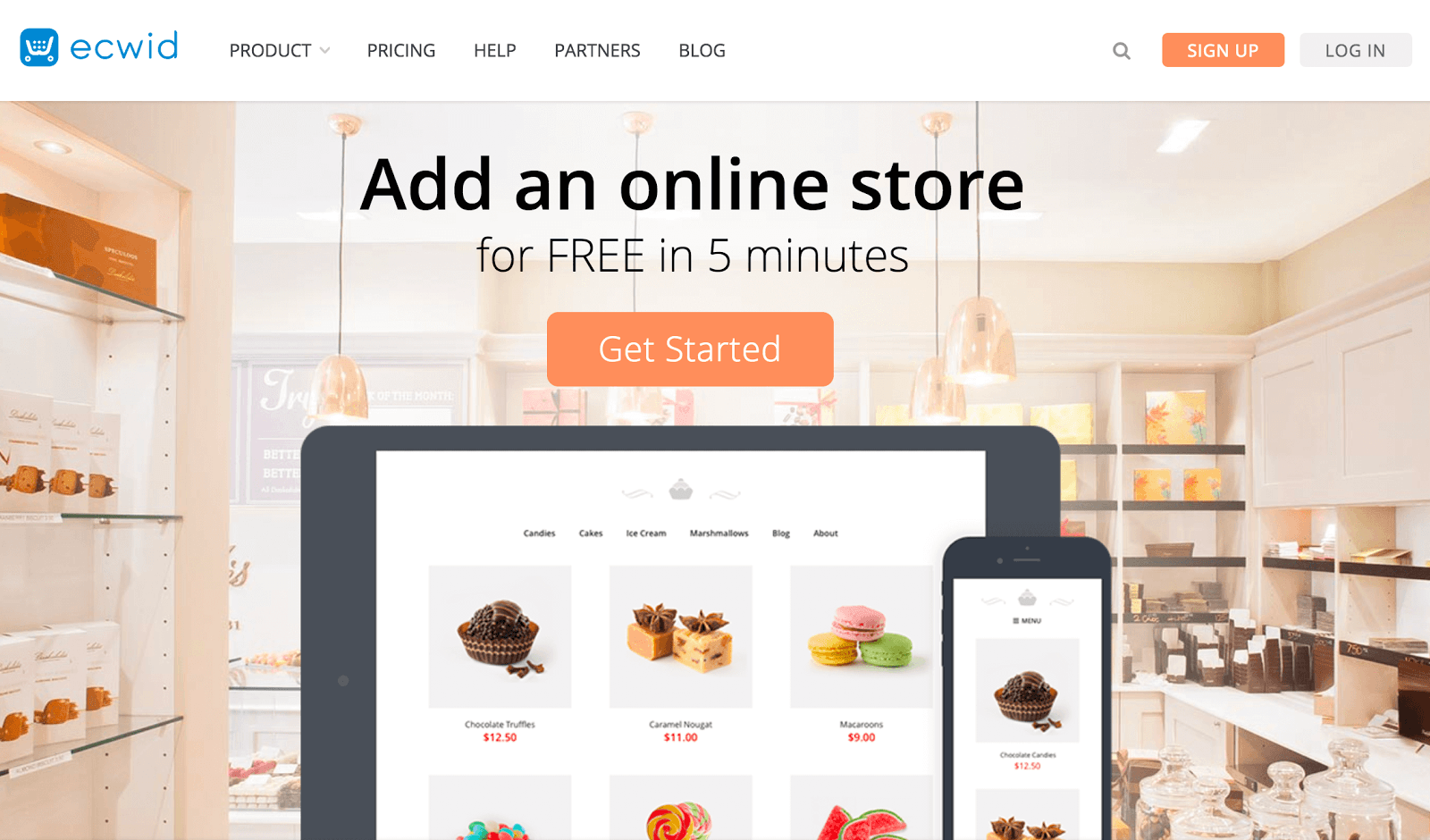Shopify For WordPress Alternatives
Shopify is a popular hosted e-commerce service that used to offer a free, officially supported plugin for integration with WordPress. However, starting July 2017 it’s no longer being supported. It’s also not been made clear whether the plugin will continue to function in any capacity after its retirement.
Going forward, Shopify will require you to embed buttons on your WordPress site in order to make sales. This means you have two options to consider. First, you may benefit from immediately making the switch to avoid unwanted bugs and security issues. Second, you could also change e-commerce platforms entirely!
Fortunately, there are a number of quality Shopify alternatives available, many of which integrate seamlessly into WordPress. In this article, we’ll show you three options, comparing and contrasting them with Shopify. Let’s get started!
WooCommerce

WooCommerce is a completely free plugin for adding e-commerce capabilities to the WordPress Content Management System (CMS). It’s available for all self-hosted WordPress.org sites, as well as those on the WordPress.com Business plan.
Unlike Shopify, WooCommerce gives you almost complete control over your store, and you get to be in charge of its configuration from the ground up. Whether this appeals to you depends on how complex your needs are. For simple businesses, the options available in WooCommerce may feel like overkill. However, for those who want to run an e-commerce site for free or need advanced customization options, it’s an ideal solution.
WooCommerce supports physical and digital sales from your WordPress website, even allowing for variable products and inventory tracking. It supports payment from PayPal, BACS, cash on delivery, Amazon Pay, Stripe, and much more. Shipping options are fully under your control; you can disable shipping entirely, limit or restrict shipping to certain countries, and choose whether it should be free, flat-rate, or offer calculated charges per item.
Taxes are also unbelievably easy to work with, as they are automatically calculated for you based on the geographic sales location. Even coupons and product ratings are supported right out of the box!
Also in contrast to Shopify, WooCommerce is free and open-source. As such, there’s an entire community of powerful extensions (both free and premium) to help you add nearly any feature you want to your store. It means you’re not limited to WooCommerce’s out-of-the-box features but can customize its functionality to suit your specific needs. If you are interested in hosting your own e-commerce site on WordPress, WooCommerce is well worth looking into.
BigCommerce

BigCommerce is a managed hosted e-commerce solution. They provide the hosting space, infrastructure, and sales tools you need to get up and running without additional services. Their starting tier is priced at $29.95 USD per month, with the option to save 10 percent if you pay annually.
This approach is similar to Shopify, and while there are a few integration options for WordPress, ultimately your BigCommerce site will be managed separately. Similar to Shopify, you’ll need to embed buy buttons on your site to make sales.
BigCommerce is designed to be a self-sufficient e-commerce platform. Even the cheapest accounts provide Amazon and Google Shop integrations, social media sales management, and point of sale tools. You can also choose to accept payments without additional charges from merchant accounts such as PayPal, Square, Amazon Pay, Stripe, and Apple Pay.
Once you sign up to BigCommerce, you get back end account management tools as well as a well-designed front end website. You can also launch a blog using their services, or opt to use your own WordPress site and link to it on a separate domain. Coupons and discount management are complemented by the ability to sell gift cards.
If you’re not satisfied with Shopify but would enjoy a similar e-commerce selling experience, BigCommerce offers a free 15-day trial to test the waters.
Ecwid

Ecwid is also a managed hosting e-commerce service, offering another alternative all-in-one solution for running an online store. It offers some easy integration tools to help match the design of your external website, with special consideration for WordPress. There’s also a free membership level to get started.
While Ecwid is similar to Shopify and BigCommerce in that it provides a hosted e-commerce selling platform, there are more options for integrating it with external platforms such as WordPress. For example, it offers a free WordPress plugin to make the process as simple as possible.
Ecwid is designed with small and medium businesses in mind, by keeping its options simpler and more accessible for those on a small budget. You receive a hosted website and Facebook store with every account, and your online store will be optimized for mobile checkout – along with the option to upgrade to mobile apps for both management and sales.
The starter package lets you sell ten products, while the first premium tier bumps this up to 100, gives you the ability to sell digital items, and offers a point of sale functionality.
Overall, Ecwid is a good starting point for anyone wanting to dip their toes into e-commerce without managing their own software or worrying about monthly payments initially. Given the free tier, there’s no reason you can’t take it for a thorough test drive.
In our opinion, the most powerful and affordable option for e-commerce is WooCommerce, as it provides enterprise-grade capabilities for free on your self-hosted WordPress website.
When you choose a stellar hosting provider such as WP Engine, your e-commerce site will be given optimal performance to help improve your sales. For example, you can take advantage of redundant cloud hosting to offer you the best WooCommerce performance around, and every plan comes with an automated SSL certificate for free. Not only will your e-commerce site run smoothly, your customer’s data will be safe too.
